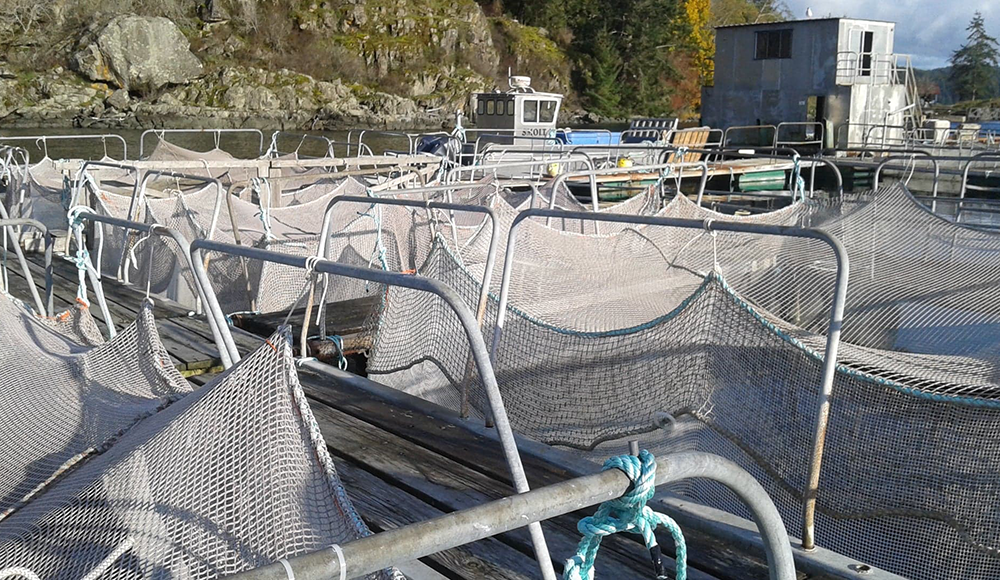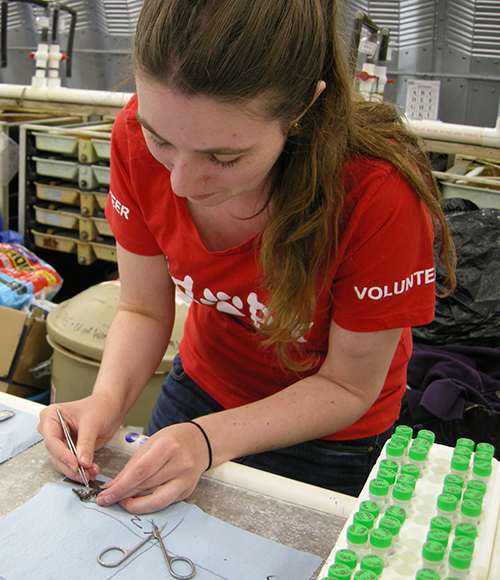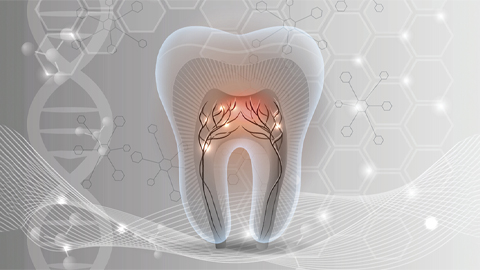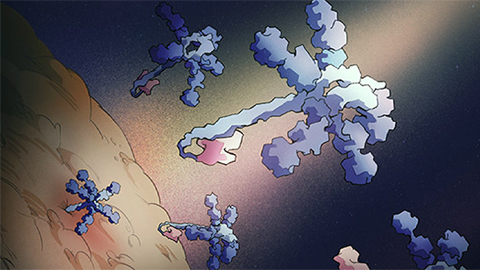Can probiotics change fish behavior?


Frank and her colleagues in Christina Semeniuk’s lab and comentor Daniel Heath’s lab at the University of Windsor in Ontario are trying to determine whether an unlikely intervention — a probiotic supplement in fish food — might help triploid Chinook salmon fare better. They’re starting with how the fish behave.
“Behavioral flexibility and sensitivity … would be an immediate measure for physiological (and neural genomic) change, given the connections between the gut–brain–behavior axis,” Semeniuk said.
Frank tested how probiotic supplements added to fish food affected the way hundreds of fingerling diploid and triploid fish respond to novel stimuli such as a glass bead tossed into the tank, a predator-shaped dummy passing overhead and an approaching human researcher. She will present her work as part of the Genomics poster session during the 2021 ASBMB annual meeting; you can see her talk and post questions while the meeting is underway.
In the future, Frank plans to integrate transcriptomic analyses with her behavioral studies, an approach known as behavioral genomics. Little is known about how triploidy affects genes related to learning and memory, so even if probiotics have little effect, she stands to learn something interesting.
Enjoy reading ASBMB Today?
Become a member to receive the print edition monthly and the digital edition weekly.
Learn moreGet the latest from ASBMB Today
Enter your email address, and we’ll send you a weekly email with recent articles, interviews and more.
Latest in Science
Science highlights or most popular articles

From the journals: JLR
A “T” makes a difference in blood clotting. High cholesterol: two screens are better than one. Biomarkers for cardiovascular risk. Statin-induced changes to the HDL lipidome. Read about recent papers on these topics.

Decoding microglial language
Emory University scientists characterize extracellular vesicles that facilitate intercellular communication.

What is metabolism?
A biochemist explains how different people convert energy differently – and why that matters for your health.

What’s next in the Ozempic era?
Diabetes, weight loss and now heart health: A new family of drugs is changing the way scientists are thinking about obesity — and more uses are on the horizon.

How a gene spurs tooth development
University of Iowa researchers find a clue in a rare genetic disorder’s missing chromosome.

New class of antimicrobials discovered in soil bacteria
Scientists have mined Streptomyces for antibiotics for nearly a century, but the newly identified umbrella toxin escaped notice.

